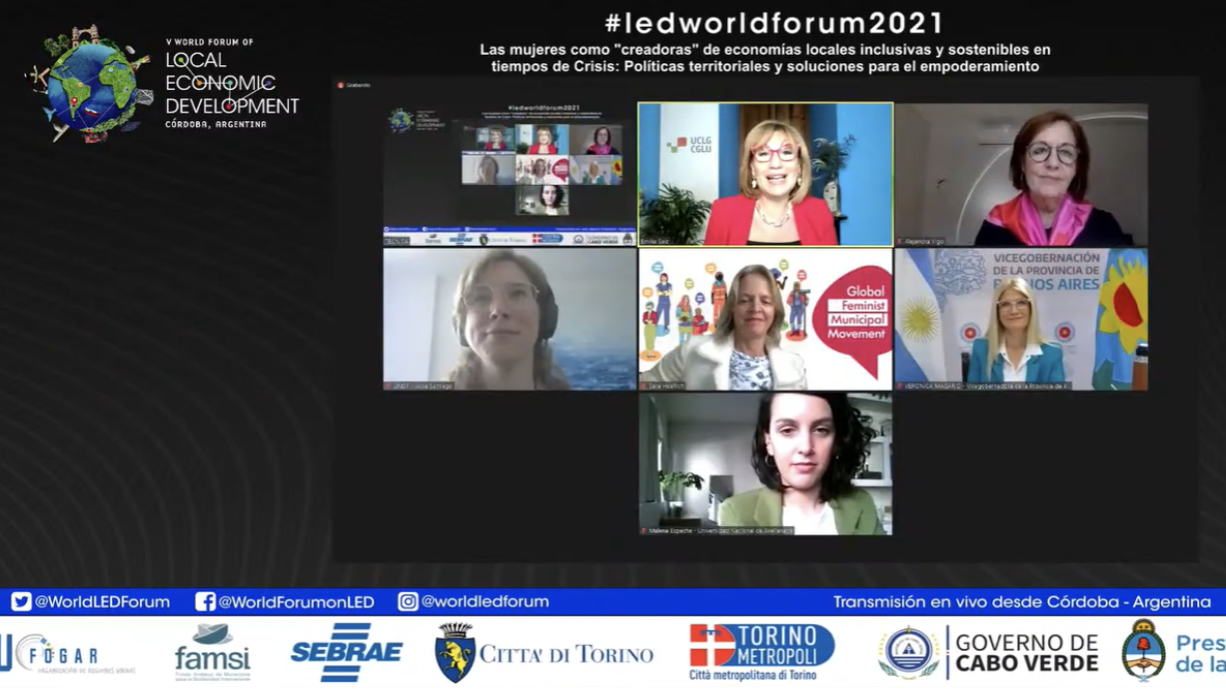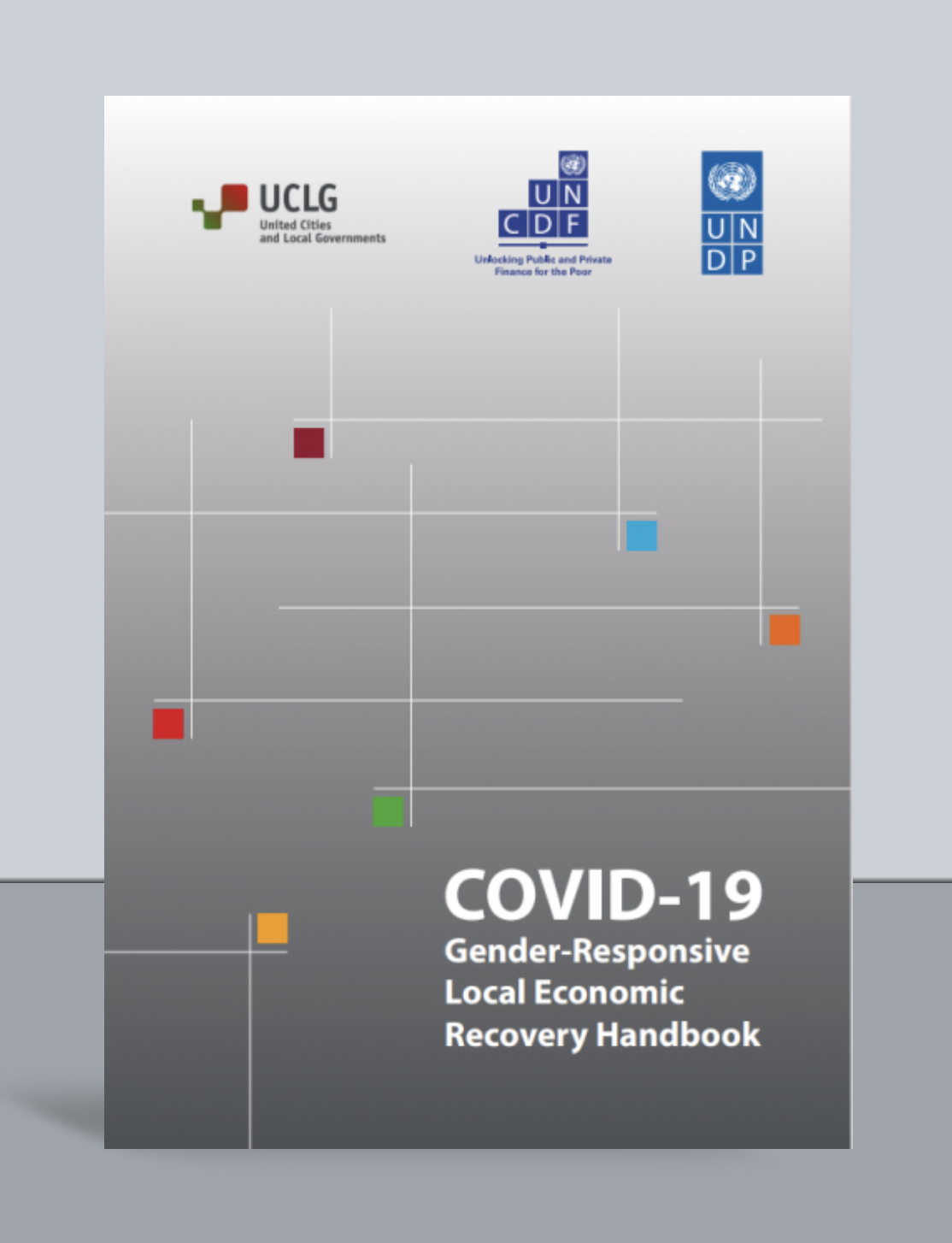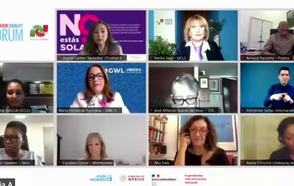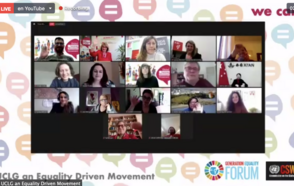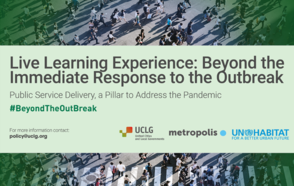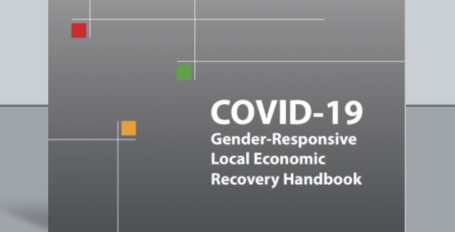
Also in the lead up to the Generation Equality forum, UCLG has been involved in important engagements in the spirit of the feminist municipal movement. This includes 2 publications with external partners and members that further nurtures the UCLG agenda that will enhance the gender strategy in 2022 into all fields of work.
Namely, the launch of the UNDP-UNCDF-UCLG Gender-Responsive Local Economic Recovery Handbook, and the launch of the UCLG-CIB Publication on Gender Equality. Two events gave room to the launching and emphasised a conviction that local governments can play an important role in promoting gender equality.
- At the World Forum of Local Economic Development, on 27 May, UCLG Secretary General Emilia Saiz moderated the Gender-Responsive Handbook launch, in the session, “Women as creators of inclusive and sustainable local economies in times of crisis: territorial policies and solutions for empowerment”. She cautioned that COVID-19 was deteroriating hard-won gains of the feminist movement.
Verónica Magario, Vice-Governor of Buenos Aires Province, highlighted the critical role women played during the pandemic and reiterated the importance of enabling women to enter political leadership. Rocío Ruíz, Minister of Equality, Social Policies and Conciliation, Junta de Andalucia, explained: “As long as discrimination against women continues, we will not achieve the SDGs. This requires co-responsibility from men and women.” Macoura Dao Coulibaly, Mayor of Foumbolo, and President of REFELA outlined that strengthening women's socio-economic autonomy through local policies is imperative. Alejandra Maria Vigo, National Deputy of Argentina, highlighted the value of unpaid care-work as vital to local economies, suggesting local and national budgets incorporate a gender perspective. National University of Avellaneda’s Secretary of University Welfare, Malena Espeche, added that the digital revolution 4.0 is not gender neutral, and universities have an obligation to ensure no one is left behind.
The COVID-19 Gender-Responsive Local Economic Recovery Handbook was presented by Aroa Santiago, Gender Specialist, UNDP. “Why do we need a handbook? Covid-19 reminds us of the deeply structural nature of gender inequality. Local governments, as the authorities closest to communities, are facing the burden of increased marginalisation and violence against women during the pandemic. This Handbook is a response; “a roadmap for achieving economic recovery with a gendered perspective”. Sara Hoeflich, UCLG Learning Director, continued: the goal is to “enhance the capacity of local governments”. Key to success is supporting young women to enter the political world. “Taking the Handbook as a starting point, this will be an important aspect of the UCLG Learning agenda in future”.
- Following this high note, the UCLG-CIB Publication on Gender Equality was launched on 23 June. The guide identifies best practices, modalities, concrete actions as well as needs and challenges to consider when incorporating a gender-perspective into policies and projects, explained first author, Sandra Ceciarini. UCLG’s Policy Officer Rodrigo Messias went on: “We take women and feminist leadership as the transformative driver for the new social pact, as inspiration for a different type of government; of proximity, community, improved service provision and care.”
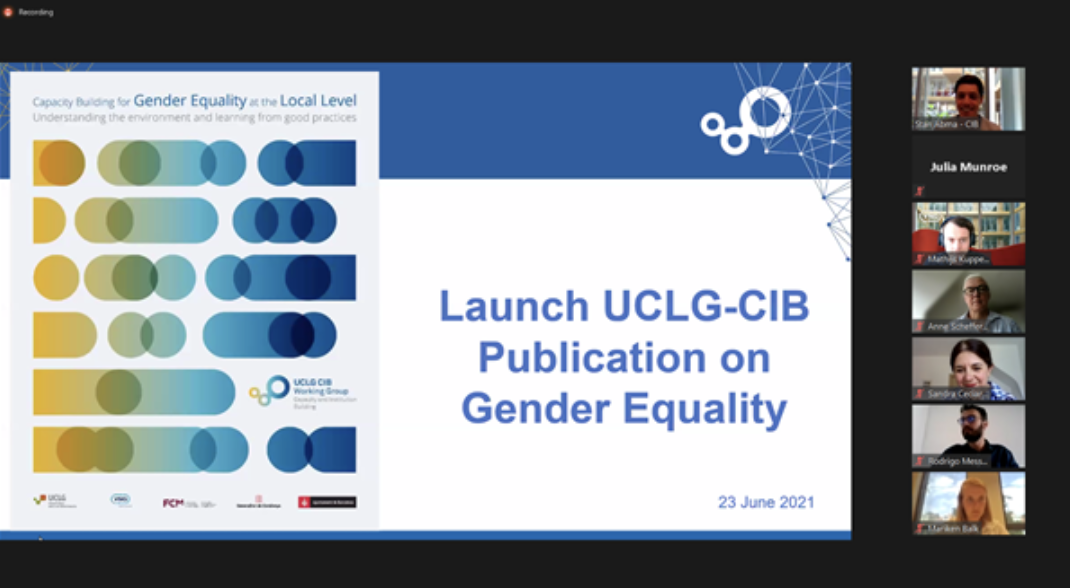 Participants had the opportunity to hear about four of the best practices featured in the publication, namely, from Hemanthi Gooasekera, who spoke on constructive actions by the Sri Lankan LGA to support locally elected women; Sabine Ghazouani, on CILG-VNG International’s work on gender parity in Tunisia; Elena Pierce on strengthening Latin American municipalities for better service provision; and Jaimie Just on co-developing an African local charter for gender equality. Benjamin Oloyede then shared from the donor experience: “gender equality is cross-cutting - a necessary premise for all processes”.
Participants had the opportunity to hear about four of the best practices featured in the publication, namely, from Hemanthi Gooasekera, who spoke on constructive actions by the Sri Lankan LGA to support locally elected women; Sabine Ghazouani, on CILG-VNG International’s work on gender parity in Tunisia; Elena Pierce on strengthening Latin American municipalities for better service provision; and Jaimie Just on co-developing an African local charter for gender equality. Benjamin Oloyede then shared from the donor experience: “gender equality is cross-cutting - a necessary premise for all processes”.
The session highlighted the enabling role that local governments and their associations can play to support the feminist municipal movement and create enabling environments for women leaders. Organisational codes of conduct, training boys and men as change agents, incorporating intersectionality as well as gender-responsive procurement and budgeting were among the many suggestions to create more inclusive, gender equal societies. Sara Hoeflich emphasised that the publication is a “milestone for our gender agenda” but urged that “we still need to go further in all areas”, whether through advocacy, knowledge-sharing or trainings. Only then can we ensure that care is truly at the centre, and a more inclusive and sustainable world can be reached.











